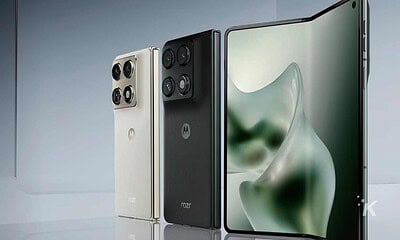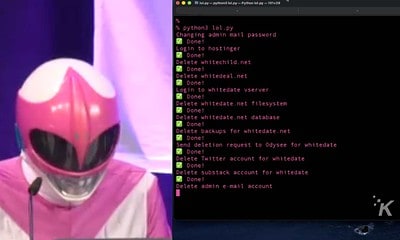News
Smartphones and computers are safe from Trump’s tariffs (for now)
Consumer electronics could be grouped with new tariffs within the next month or two.

Just a heads up, if you buy something through our links, we may get a small share of the sale. It’s one of the ways we keep the lights on here. Click here for more.
The Trump administration recently announced that certain popular consumer electronics, like smartphones and laptops, will temporarily be exempt from a new wave of tariffs on Chinese-made goods.
These tariffs, which include a steep 125% duty on some products, were introduced last week as part of the administration’s strategy to reduce reliance on China.
However, according to Commerce Secretary Howard Lutnick, this exemption won’t last long.
In an interview on ABC News, Lutnick said these products will soon be grouped with new tariffs focused on the semiconductor industry, likely within the next month or two.
This approach mirrors the type of tariffs already applied to the auto industry under Trump.
When asked specifically if this means devices like iPhones, many of which are assembled in China, will face higher import taxes, Lutnick confirmed that’s the case.
He explained that the administration’s goal is to encourage companies to move manufacturing back to the US, or “reshore” their operations.
However, ABC anchor Jonathan Karl pointed out the challenge in that idea, noting that opening factories to build something as complex as an iPhone can’t happen overnight.
In response, Lutnick argued that it’s still possible to make things domestically, pointing to Panasonic as an example.
He mentioned that a Japanese electronics company is opening a large battery factory in Kansas, a project that began while Trump was still in office and is now nearing completion.
Interestingly, that factory also benefits from billions of dollars in incentives through the Inflation Reduction Act, a law passed under President Biden.
Trump has threatened to take back any unspent funds from that program if re-elected.
Overall, while the impact on prices remains uncertain, the administration appears determined to push for more American manufacturing, even if it means temporary disruption or higher costs for consumers.
The coming months will reveal how this strategy plays out for both tech companies and everyday shoppers.
What do you think of these tariffs and the exemptions? Do you think the idea should be eliminated altogether? We want to hear your opinions below in the comments, or via our Twitter or Facebook.


























